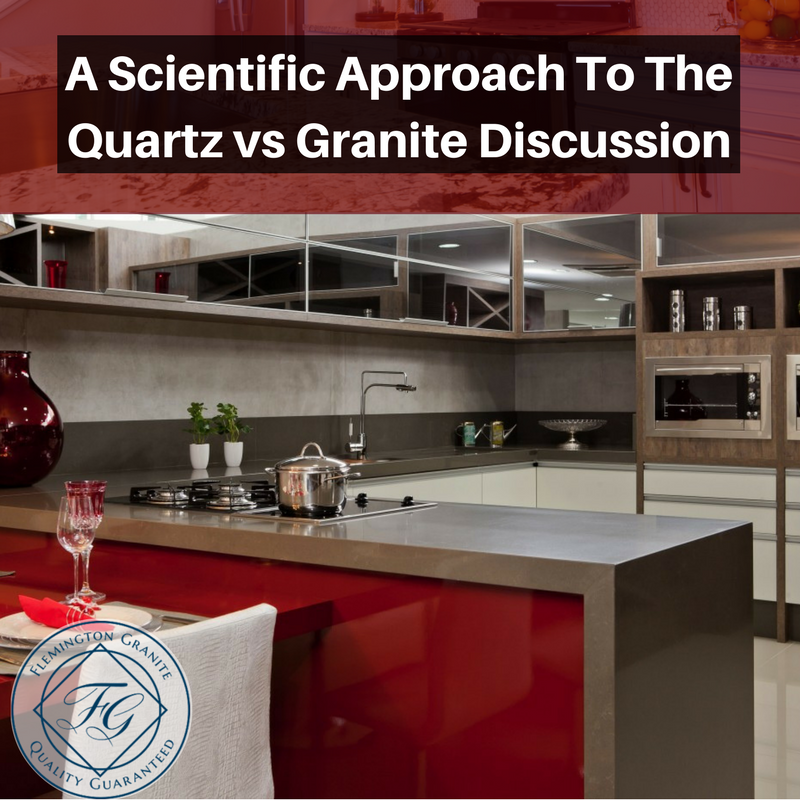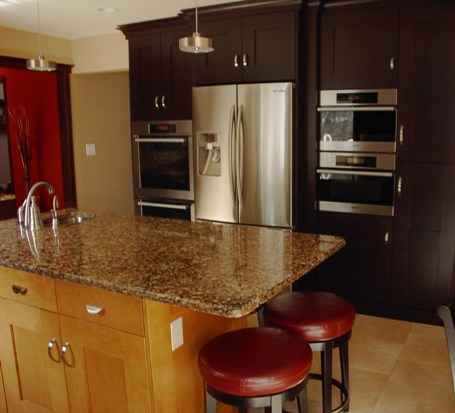If you are considering a remodeling project that will include countertops, you may be confused as to whether quartz or granite countertops are the better option. There are many factors that you must use to determine what countertop is best for your needs, but a scientific explanation of the differences may help you determine which will be best suited for your project.
Granite and Its Formation
Scientifically, granite is a plutonic rock composed of quarts, normally between 10 and 50 percent, and total feldspar, normally 65 to 90 percent. In addition, granite may contain mica, amphibole and other trace minerals. It is the various minerals included in each slab of granite that give it the colors and textures that make it so popular for countertops. Granite was formed by cooling molten rock, usually deep below the surface of the Earth. The granite that is pulled from the Earth today is near the surface because it was uplifted so that sediment was shed through erosion. The shift from a high pressure environment and temperature to the atmospheric temperature and pressure leads to expansion and cracking, causing granite to be softer than other types of countertop material.
The Formation of Quartz
When people think of quartz, they often think of white sandy beaches with flecks of pink or brown. As weaker minerals erode due to weather, quartz is often left as a predominant mineral on beaches, far from sediment sources. Quartz countertops, however, are actually manufactured, consisting of 90 percent quartz blended with resin, polymers and pigment for color. This creates countertops that are durable without pores or cracks and the pigment used is naturally found in quartz arenite.
Granite and Radon
There have been online sources reporting that granite countertops may contain radon, a radioactive gas that is naturally found in the stone. Granites can contain radon in parts per billion, but the amount found in countertops is so minimal it poses no threat to humans. Quartz countertops have no radon, but that does not make quartz a safer alternative than granite. Radiation is encountered in many different ways throughout daily life, including while flying, walking through a city and basically living life, so the amount of radon in granite poses no real threat.
When it comes to choosing granite or quartz, it may come down to simple factors like price, color choices and durability. If you are considering granite or quartz countertops, contact our knowledgeable customer service representatives to learn what products are best for you by completing the simple form on line or giving us a call.


